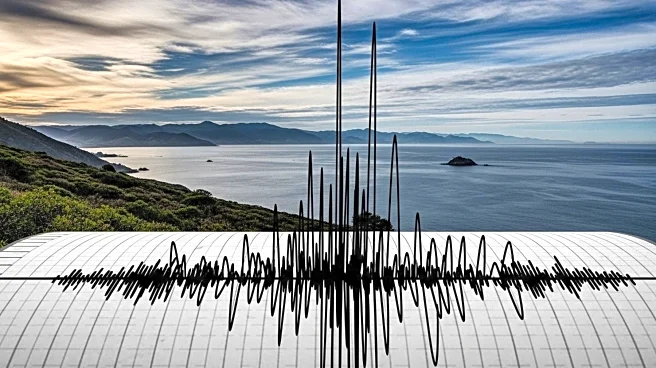What's Happening?
A magnitude 7.8 earthquake struck off the eastern coast of Russia, prompting a tsunami advisory for parts of Alaska. The advisory, issued by the National Tsunami Warning Center, was later canceled as no tsunami waves were detected. The earthquake occurred near the Kamchatka Peninsula, a region known for its seismic activity. The Pacific Tsunami Warning Center in Honolulu also monitored the situation, confirming no threat to Hawaii. This event follows a similar earthquake in the same region two months prior, which did trigger tsunami waves across the Pacific.
Why It's Important?
The earthquake and subsequent tsunami advisory underscore the importance of robust monitoring and alert systems in mitigating the risks associated with seismic events. The quick issuance and cancellation of the advisory demonstrate the effectiveness of current systems in providing timely information to potentially affected areas. Such events highlight the need for preparedness in coastal communities, where the impact of tsunamis can be devastating. The incident also serves as a reminder of the ongoing seismic activity in the Pacific region, necessitating continuous vigilance.
What's Next?
Seismologists will continue to analyze data from the earthquake to refine their understanding of the event and its potential aftershocks. Coastal communities in Alaska and other Pacific regions will remain on alert for any future seismic activity. The incident may prompt discussions on enhancing tsunami preparedness and response strategies, particularly in remote and vulnerable areas.









